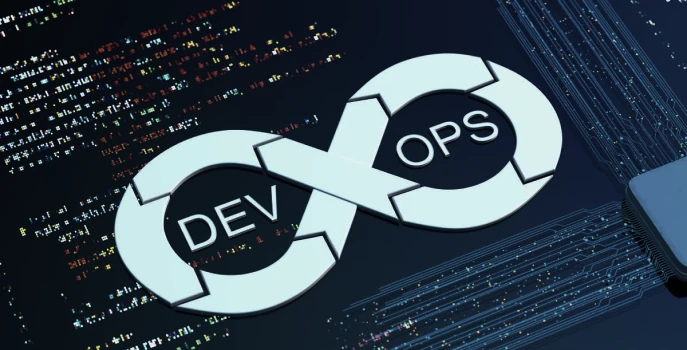
DevOps, the convergence of software development (Dev) and IT operations (Ops), revolutionizes the software development and deployment process by fostering collaboration and streamlining workflows. The primary aim of DevOps is to bridge the gap between development and operations teams, facilitating faster and more reliable software delivery while maintaining high-quality standards. By leveraging automation and optimization, DevOps empowers businesses to innovate swiftly and respond effectively to market demands.
Challenges in DevOps:
Cultural Resistance: Overcoming cultural resistance within organizations is a primary challenge when implementing DevOps. Traditional silos between development and operations can foster mistrust and resistance to change.
Complexity and Scale: As businesses expand, managing complex infrastructures and scaling applications becomes increasingly difficult. DevOps needs to address these challenges and ensure consistency across diverse environments.
Legacy Systems and Technical Debt: Older legacy systems may not be designed for seamless integration, hindering the implementation of DevOps practices and slowing down development processes.
Security Concerns: The speed of development and deployment can sometimes lead to overlooking security measures. Integrating robust security practices into DevOps workflows is vital to avoid potential vulnerabilities.
Lack of Automation: Manual processes hinder agility and efficiency. Automating repetitive tasks is a crucial aspect of DevOps, but it requires meticulous planning and execution.
DevOps Practices for Success:
Continuous Integration (CI): CI involves regularly merging code changes into a shared repository. Automated build and testing processes verify each integration, enabling teams to detect and fix issues early.
Continuous Delivery (CD): CD extends CI by automatically deploying code to production environments after passing through the testing phase. This reduces deployment risks and allows for rapid and frequent releases.
Infrastructure as Code (IaC): Treating infrastructure configuration as code enables developers to manage and provision resources through code and version control, ensuring consistency and minimizing manual errors.
Automated Testing: Automated testing, encompassing unit tests, integration tests, and end-to-end tests, helps maintain code quality, identify bugs early, and ensure a reliable software release.
Monitoring and Logging: Continuous monitoring and logging of applications and infrastructure provide valuable insights into performance, reliability, and potential issues, facilitating quick responses and proactive improvements.
Solutions for Successful DevOps Implementation:
Top-Down Support: DevOps implementation requires support from top management to break down silos and promote a collaborative culture.
Skills and Training: Invest in upskilling and training the existing workforce to align with DevOps practices, tools, and technologies.
Gradual Adoption: Introduce DevOps practices gradually, starting with small, manageable projects before scaling up.
Automate Wisely: Prioritize and carefully choose processes for automation to maximize efficiency and avoid unnecessary complexities.
Security Integration: Incorporate security practices into the entire development and deployment lifecycle to safeguard applications and data.
Toolchain Selection: Choose appropriate DevOps tools that align with your organization’s needs and requirements.
Continuous Improvement: Embrace a culture of continuous improvement, encouraging teams to learn from failures and enhance processes iteratively.
DevOps presents businesses with a powerful approach to enhance collaboration, efficiency, and software delivery. While challenges may arise, with the right mindset, practices, and solutions, businesses can successfully embrace DevOps and gain a competitive advantage in the fast-paced digital landscape. By fostering a product-centric organization through DevOps practices, businesses can efficiently deliver valuable products that exceed customer expectations and foster loyalty.


